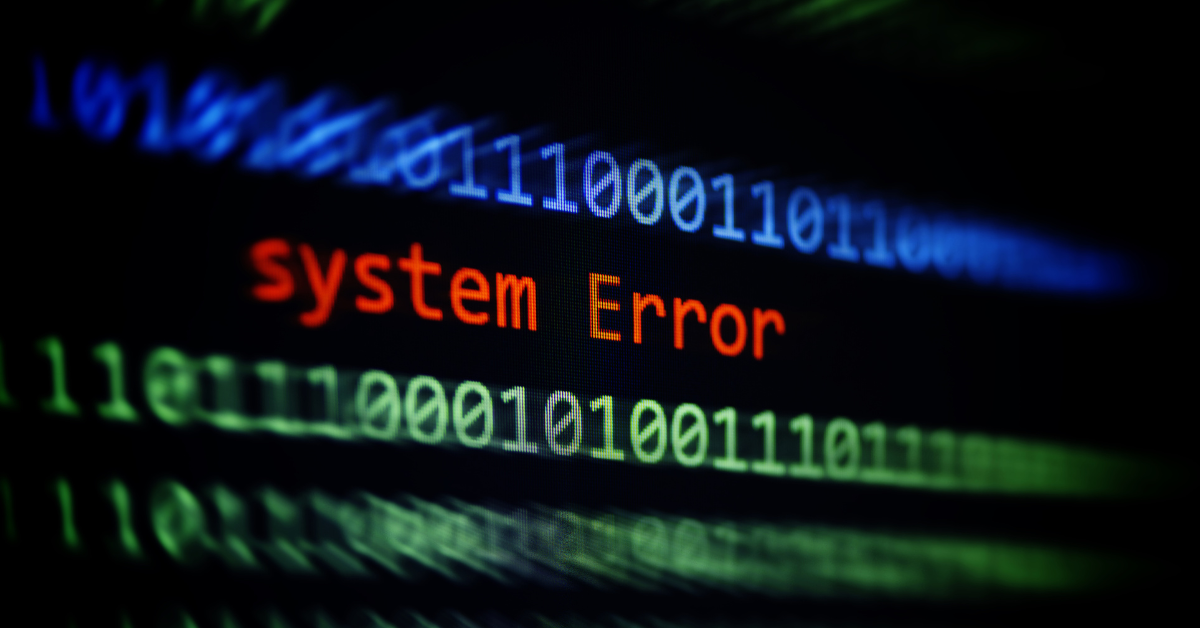Lessons Learned from the CrowdStrike Outages
Business Strategy | Cybersecurity | Disaster Recovery | Outsourced IT Support
A couple of weeks ago, a widespread IT issue caused downtime for industries worldwide. This downtime was caused by an update from the cybersecurity application CrowdStrike that crashed Microsoft operating systems.
According to the insurance company Parametrix, U.S. Fortune 500 companies, excluding Microsoft, will face $5.4 billion in financial losses from the outages. Parametrix CEO Jonatan Hatzor said it was likely “the biggest accumulation event we ever saw in cyber insurance.”
So, what can we learn from this, and what can your business do to try and prevent or lessen the impact of an event like this in the future? Let’s talk through some lessons we’ve learned.
For starters, while no one can guarantee that something like the CrowdStrike/Microsoft incident will never affect you, having capable resources accountable for proactive IT management and reactive troubleshooting when problems arise help ensure you can minimize the impacts of an IT incident, even when the incident occurs.
The article below contains some strategies to help you ensure you’re positioned to proactively protect yourself from technology incidents within your control and have the right resources available to remediate incidents, like the one many organizations just experienced, that are out of your control.
Before fully diving in, we will note our bias as an IT company. This article will mention the importance of managed IT services and other proactive IT investments. However, we and other MSPs like us will not be for everyone. We confidently believe that IT accountability is essential for every business, regardless of the services, solutions and infrastructure it has in place.
This Could Have Happened to Anyone
Whether or not the outages directly impacted you, it’s still important to understand that this could have happened to anyone. Technology is amazing, but it can and will have its flaws. The CrowdStrike issue is an extreme example, but it still highlights the need for an accountable IT partner to help ensure you stay proactive in the face of downtime or other IT issues.
If you lack technological help or expertise, an event like this will likely take you longer to recover from than someone who does.
Technology Investments are Proactive
Let’s talk about the proactive nature of IT investments. If you regularly check our blog, you know we hammer away at the idea that technology investments are largely proactive. It’s practically a given that things will break from time to time, and it’s important to be prepared for that.
We can try all we want to avoid “scare tactics” or “sales tactics,” but this is just the harsh reality of our industry. Downtime can be highly damaging to a business, particularly a small or medium-sized one. So, how can you invest in IT services and solutions without breaking the bank?
It all comes down to long-term planning, expertise and accountability.
Having a Trusted IT Leader
Whether internal or external, you should have someone accountable for your business’ IT. As was perfectly illustrated a couple of weeks ago, this stuff is crucial, and you’ll want someone who can provide expertise, devise a strategy and be held accountable for the results.
An MSP can help ensure these outcomes for many small and medium-sized businesses. Through an account manager or vCIO, your business can plan long-term for necessary technology investments that help decrease downtime, increase productivity and allow you to leverage technology for growth.
They can help you plan for hardware lifecycles and cybersecurity investments and assist with creating a business continuity and disaster recovery (BCDR) strategy. The last thing you want to do is face an IT problem without adequate help.
Assign the accountability beforehand so you won’t be left scrambling after something’s already broken. Your technology and your business are far too important to ignore this stuff.
Accountability Beyond IT
Even outside of IT, your business can benefit from having well-defined accountabilities. Quickly identifying who owns a particular task or function can save time and yield better results. Who wants to waste time in an email chain figuring out who owns what? In an emergency or downtime, you don’t want to search for who’s accountable when it could have been done beforehand.
Whether explicitly documented or not, people in your business likely have a general idea of who owns what. This can include job functions, tasks and general operations. If IT isn’t a piece of that puzzle, it should be.
If you need something from someone, you can check who owns the accountability and talk to that person directly; then, they can prioritize and let you know when it can be done. Here at Innovative, we run on EOS (Entrepreneurial Operating System), which provides the framework and tools to help us prioritize problems and define accountabilities.
Prepare Now and Worry Less
If you have a gut feeling your company lacks technology expertise or IT accountability, it’s never too late to start the conversation. Whether that’s a preliminary talk with your internal leadership or an introductory phone call with an IT company (we’d be happy to talk with you about your business), it’s never too late to better understand your technology and business needs.




